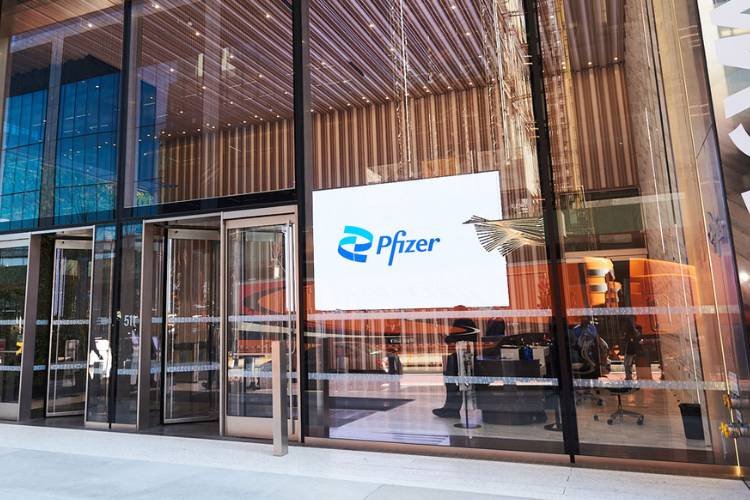Pfizer is making strategic moves to reinforce its presence in the oncology arena, with the FDA granting approval for its Braftovi and Mektovi combination in the treatment of metastatic non-small cell lung cancer (NSCLC) carrying BRAF V600E mutations, as announced by the agency on Wednesday.
Pfizer’s entry into this treatment realm, however, comes notably late. Novartis secured FDA clearance for its own BRAF-MEK combination, Tafinlar and Mekinist, in the same setting more than six years ago. In fact, Novartis received a significant advantage last year when its cocktail obtained a tumor-agnostic label, enabling its use in the treatment of advanced solid tumors with the BRAF V600E mutation, either after prior therapy or when no alternative treatment options are available.
Also Read: Amgen Unveils Exciting First-Line KRAS G12C NSCLC Data: Lumakras (Sotorasib) With Chemotherapy Shines At WCLC
BRAF mutations represent well-established biomarkers in NSCLC that can be effectively targeted by specific therapies. Pfizer already boasts FDA-approved drugs for various genomic abnormalities in NSCLC, such as Xalkori and Lorbrena for ALK-positive or ROS1-positive NSCLC, and Vizimpro for EGFR-mutated disease. It’s important to note that the BRAF V600E mutation accounts for around 2% of NSCLC cases.
Like the 2017 approval of Novartis’ combination, Pfizer’s approach also relied on data from a single-arm phase 2 trial. In the PHAROS study, Pfizer’s regimen demonstrated tumor shrinkage in 75% of 59 treatment-naïve patients and 46% of 39 patients who had previously received treatment.
In a separate Novartis trial, Tafinlar and Mekinist showed a 61% response rate in newly diagnosed patients and 63% in those who had undergone prior treatment. However, given the differences in the trials and their relatively small scale, it’s difficult to draw conclusive comparisons regarding the efficacy of the two therapies.
Despite this, Novartis enjoys a more extensive label, resulting in higher sales. In the previous year, Novartis’ drugs generated $1.77 billion in revenue, growing by 11% at constant currencies, while Pfizer’s Braftovi and Mektovi brought in $370 million, marking an 8% growth from the previous year.
Also Read: Enhertu, A Breakthrough Therapy For HER2 Mutant NSCLC, Gets EU Nod
Pfizer acquired Braftovi and Mektovi in 2019 through an $11.4 billion acquisition of Array BioPharma, a specialized oncology company. This move is part of Pfizer’s ongoing expansion in the oncology sector, with past acquisitions including the $14 billion purchase of Medivation in 2016, granting them the Astellas-partnered prostate cancer drug Xtandi.
As Pfizer faces increased competition for its top-selling cancer drug, Ibrance, in breast cancer, it has continued to explore opportunities in the market. In March, Pfizer launched a $43 billion bid to acquire Seagen, a developer of antibody-drug conjugates. However, this deal has encountered an antitrust hurdle, as the US Federal Trade Commission has requested further information before making a decision.





























